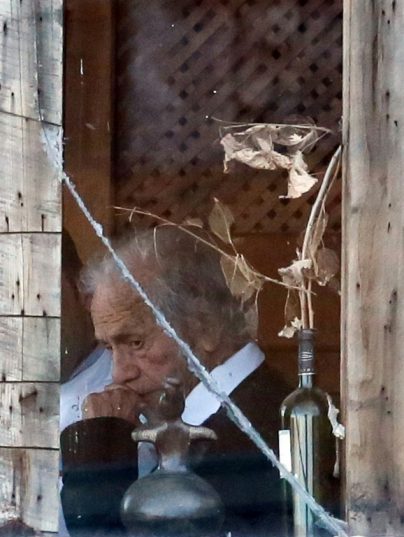Influential Chilean poet Nicanor Parra died Tuesday aged 103, leaving a legacy of "anti-poetry" with which he revolutionized Latin American literature and won the Spanish-speaking world's highest literary honor.

Chile’s President Michelle Bachelet called Parra “one of the greatest authors in the history of our literature, and a unique voice in Western culture.”
Parra died early Tuesday at his home in Chile’s capital Santiago, his family announced.
Already an established physicist and mathematician before his renown as a poet, the colorful Parra honed an irreverent style in the second half of the 20th Century that was to become known as anti-poetry.
In part it grew from his public literary jousting with Pablo Neruda, Chile’s Nobel Prize winner who helped him find a publisher but whose lofty literature he sought to undermine with his campaign to make poetry more accessible to ordinary people.
He urged poets such as Neruda to “come down from Olympus” and deal with everyday themes.

This file photo taken on September 5, 2014 shows Chilean poet Nicanor Parra inside his home in Las Cruces, some 100 km west of Santiago, on his 100th birthday
His blunt and darkly humorous poetry was subversive and irreverent, focusing on the everyday problems of ordinary people.
His rejection of grand literary constructs came with his 1954 collection “Poems and antipoems,” followed by “Anti-poems” and books such as “Poems to combat baldness.”
Already at an advanced age when he was awarded the Cervantes Prize in 2011, Parra did not travel to Spain to receive the award.
He also received the Juan Rulfo Latin American and Caribbean Literature Prize (1991) and the Reina Sofia Iberoamerican Poetry Prize (2001).
Support Local Journalism
Add The Citizen as a Preferred Source on Google and follow us on Google News to see more of our trusted reporting in Google News and Top Stories.








